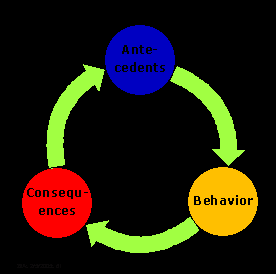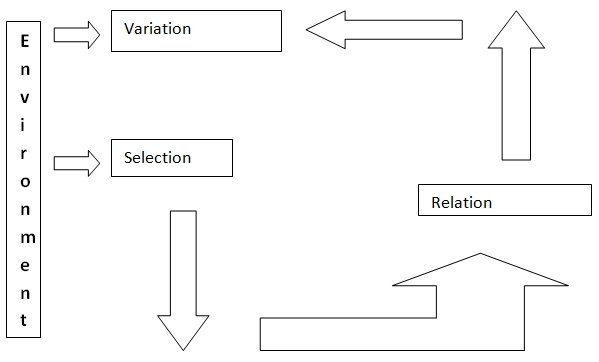Introduction
Learning entails the process of acquiring knowledge, skills and ideas thus gaining a new perspective of the world. The learning process is influenced by factors which emanate from internal and external sources. Some of these include environmental, cognitive and emotional influences.
Learning theories are aimed at giving an explanation of what take place in the learning process. The theories attempt to explain the processes involved in acquisition of knowledge. It is through learning theories that one acquires knowledge to interpret the various examples of learning processes.
As a result, one is able to solve practical problems and issues arising from the learning processes. There are several learning theories which explain the learning process. These include behavioral theories, cognitive theories, holistic theories and humanistic theories of learning among others. This study seeks to compare behavioral and cognitive theories of leaning.
Behavioral Theories of Learning
According to Huitt and Hummel (1999, p. 5), behavioral approach to learning focuses on how the environment influences observable behaviors. These theories assert that for every response which is overt, there is a stimulus which causes it.
Classical conditioning
Pavlov used a dog to conduct a study on classical conditioning. Findings of the study revealed that every response is elicited by a stimulus. In order to gain a better understanding on classical conditioning, both unconditioned and neutral stimulus were used.
Repeatedly, the neutral stimulus changes to a conditioned stimulus which in turn elicits a conditioned response. With time, this conditioned response becomes a habitual association achieved through pairing of neutral stimulus and the unconditioned stimulus which to leads to a person or animal giving a similar response to both stimulus.

Ivan Pavlov’s dog salivates each time the bell rings. This is due to the fact that the dog associated ringing of the bell with food.
Operant Conditioning
This behavioral learning theory was advanced by B.F. Skinner. It postulates that learning is the change of function in observable behavior as a result the responses to the stimulus within the environment. Skinner stresses on the need of reinforcement which strengthens the desired response. As a result, the antecedents of the newly learned behaviour are influenced by the consequences of previous behavior (Huitt, &Hummel, 1999, p. 3).

The diagram shows the change in behavior as a result of operant conditioning.
Connectionism
This is another theory of behavioral learning by E. Thorndike in which learning just like in operant conditioning relies on the need for reinforcement. Three basic laws are considered. These include the law of effect, law of readiness and the law of exercise. With regard to law of effect, an individual’s response is turned into a habit if a reward is attached in order to strengthen the response.
Law of readiness relates to when to events occurs in a sequence. On the other hand, law of exercise entails where connections are strengthened through practice and become unstable upon ceasing from practice.

The diagram shows Thorndike’s process in which repeated simple actions as a result of the accruing effect of reinforcement yields complex behaviors (Donahoe, 1999, p.452).
Application of Behavioral Theories of learning to the classroom situation
Ivan Pavlov’s classical conditioning theory is helpful in the classroom situation when it comes to emotional state of learners. Students tend to establish an emotional attachment to the teacher, for example, when a teacher is pleasant, learners will relate well with him or her and consequently associate the pleasantness to the subject he or she teaches. This kind of association is as a result of classical conditioning.
B. F. Skinner’s operant conditioning is a practical insight to classroom management issues. Considering the fact that the theory stresses on the need for reinforcement, teachers can implement this by pairing good performance with secondary reinforcements like verbal praises as well as awards in order to encourage good performance and behavior.
This theory also calls for use of questions as stimulus and answer as response. Through asking questions, the teacher is able to get possible answers from the students’ thus encouraging participation in classroom.
In Thorndike’s theory, trial and error is the basic concept regarding the law of exercise where connections are established because of repeated pairing of the stimulus and the response. The practice of the law of effect and exercise are essential for an effective learning process. Learning should be sequential in the sense that the items to be learned should be presented according to their level of difficulty.
Of equal importance is the fact that learning is influenced by previous situations. This is to say that previous performance of a learner determines future performance. Therefore, a teacher should make use of this to improve learning outcomes.
Differences between Behavioral and Social theories of learning
In behavioral theories of learning, we have seen that for learning to take place effectively, the learner should be actively involved in the learning process. Application of Pavlov’s theory to classroom situation requires the learner to constantly associate the stimulus and the response so that in the end the leaner develops a link between the two.
This is not the case in social theories of leaning which state that behavior learning occurs out of observation then imitation. This acknowledges the leaner as being passive to learning process since the learner only waits to imitate a desired behavior.
In addition, learning according to behavioral theories presumes that a learner should repeatedly engage in the desired activity until it becomes habitual to them thus learning. On the contrary, the social theory of learning presumes that the ability to fully learn and acquire behavior depends on the ability of the learner to retain what is observed in the mind, imitate the behavior and then adopt it.
For this reason, learning becomes limited since if the learner is unable to remember what they observed or when the learner is not motivated towards adopting a given behavior then learning will not take place. This is different from behavioral theories of learning where the learner goes through a series of learning experiences which result into acquisition of knowledge or skills.
Of equal importance is the necessity of the stimuli and appropriate responses in the learning process according to behavioral theories of learning. A behavior is learned as a result of being induced by a given stimulus from the environment. The stimuli vary depending with the context and environment for learning. In the case of social theories of learning, the stimulus-response relationship is not explicitly described. Rather, learning only occurs in the event of an observed behavior which is worth imitating.
There is also a difference in the way reinforcements are used in both behavioral and social theories of learning. According to the behavioral theory of learning reinforcements are used in the event of good performance such as when a behavior is successfully and appropriately learned, the learner is rewarded. Social theory on the other hand presumes that any slight imitation should be reinforced so as to encourage more attempts that will eventually lead to behavior acquisition.
Cognitive theories of learning
How cognitive teaching strategies help in the learning processes
In an attempt to make the learning process more easier, teaching strategies based on cognitive theories of learning have emerged to help teachers in the process of learning in areas such as vocabulary development, comprehension, concentration and writing skills. Cognitive teaching strategies help learners in many ways. First, when applied appropriately by the teacher these strategies help the learners to have a positive intellectual development.
In teaching languages, cognitive teaching strategies help in the development of vocabulary. Learners are able to interchangeably use words ranging from synonyms, antonyms, homophones as well as allophones. In addition, the learner develops proficiency in a language because of appropriate use of vocabulary in sentence constructions and other related areas.
In the acquisition of writing skills, when used appropriately by the teacher, cognitive learning strategies play a crucial role towards developing writing skills in learners. Especially the vocabulary writing strategy in which writers are expected to write detailed descriptions of a given topic. In regular use, learners gradually develop the art of writing.
Concentration game as a cognitive teaching strategy is effective in developing intellectual development in learners especially those in lower levels of learning. This is due to the fact that the strategy requires learners to participate in finding out vocabulary items and identifying those that are similar.
Learning theories are important and inevitable tools in the process of teaching and learning. Teachers need to be well versed with these theories in order to be able to have insights on the process of learning as well as to be able to work out issues related to the process of learning. Learners are well catered for when the teacher in charge of them understands the process of learning and the various strategies required in the various developments of skills and knowledge as the cognitive, behavioral and social development.
Reference List
Donahoe, W. (1999). The selectionist connection. Journal of the experimental analysis of behavior. Vol. 72, issue 3, pp. 451-454. Web.
Huitt, W. & Hummel, J. (1999). Educational Psychology. Web.